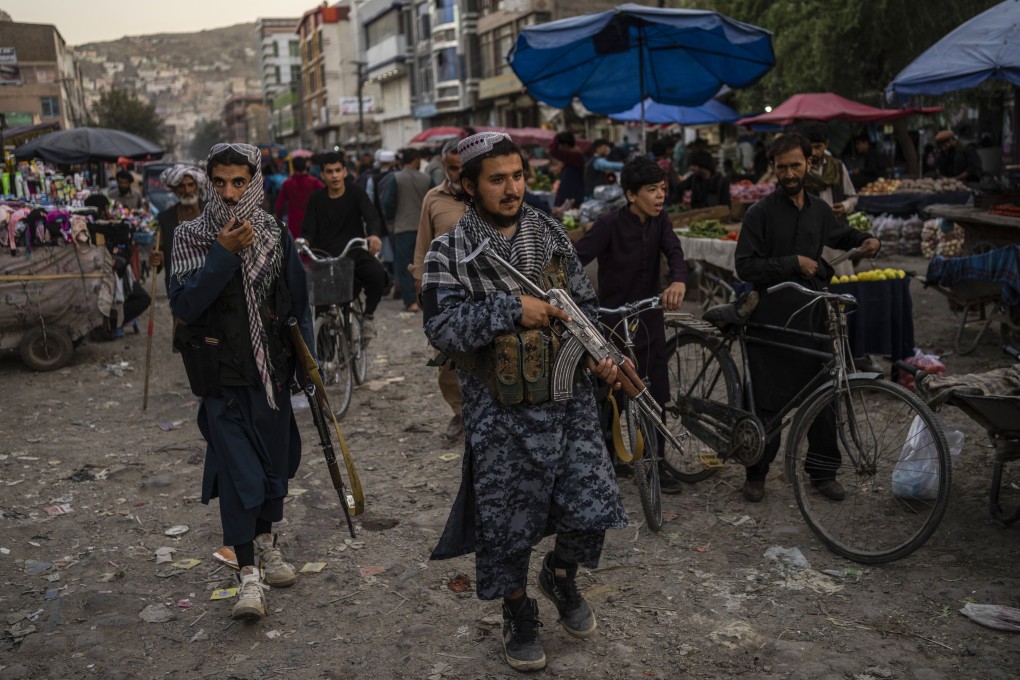Advertisement
Afghanistan on agenda at China’s Xiangshan security forum
- Two-day conference to take place via video link in late October
- Defence ministry takes aim at Aukus and British Navy deployments in the region
Reading Time:2 minutes
Why you can trust SCMP
0

Rachel Zhangin Shanghai
Afghanistan and a new Asia-Pacific security alliance will be high on the agenda in late October when China hosts its annual high-level military conference, the Beijing Xiangshan Forum.
Defence ministry spokesman Wu Qian said on Thursday that the two-day forum would be held from October 25 via video link, and would include a session on the fallout from Afghanistan on regional security.
It comes in the aftermath of the US-Nato withdrawal from the Central Asian nation, allowing the Taliban to seize power. The international community has not recognised the new regime and Afghanistan is facing an economic and humanitarian crisis without foreign aid, the foundation of its economy.
Beijing has called for ending economic sanctions on the country and for a resumption of aid.
Chinese Foreign Minister Wang Yi warned last week that worsening conditions in the country could create a refugee problem, imposing a serious economic and security burden on neighbouring countries and the international community.
China’s first batch of humanitarian aid – including blankets and other winter supplies – arrived in Kabul late on Wednesday, state news agency Xinhua reported.

Advertisement